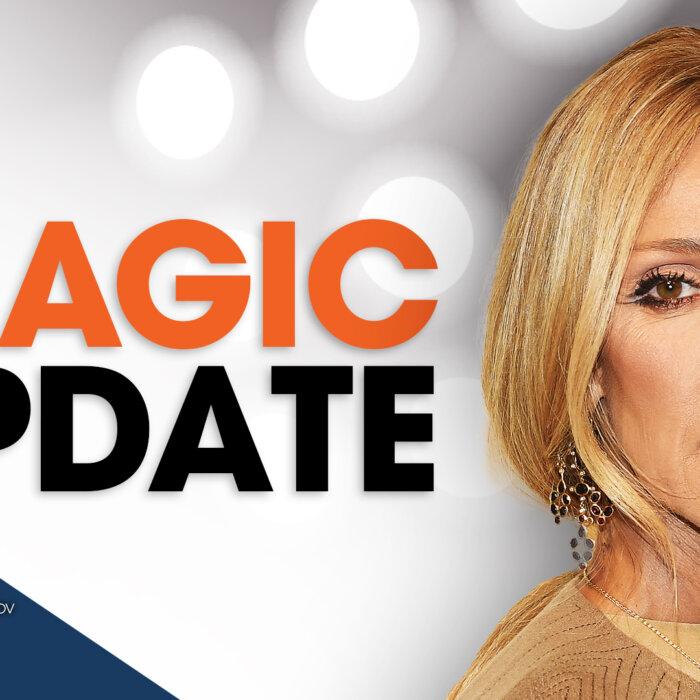Celine Dion has shared a moving update with her fans amid her ongoing battle with Stiff Person Syndrome (SPS)—a rare autoimmune disorder the Canadian singer was diagnosed with in the fall of 2022.
“Trying to overcome this autoimmune disorder has been one of the hardest experiences of my life, but I remain determined to one day get back onto the stage and to live as normal of a life as possible,” she wrote. “I am deeply grateful for the love and support from my kids, family, team and all of you!”
The five-time Grammy winner posted a photo of herself and her sons—René-Charles, 23, and 13-year-old fraternal twins Nelson and Eddy—alongside her caption.
Ms. Dion had three children with her late husband, René Angélil. The Canadian music producer and talent manager—who began managing the pop legend when she was just 12 years old—passed away from throat cancer in January 2016 at the age of 73.
In addition to her brief health update, Ms. Dion shared an uplifting message to anyone suffering from the same disorder.
SPS Diagnosis
Ms. Dion revealed her diagnosis of SPS in December 2022. In a video uploaded to her Facebook and Instagram accounts, she mentioned that the “very rare” disorder affected only about “1 in 1 million people.”“I’ve been dealing with problems with my health for a long time,” she shared. “And it’s been really difficult for me to face these challenges and to talk about everything that I’ve been going through.”
“While we’re still learning about this rare condition, we now know this is what’s been causing all of the spasms that I’ve been having,” Ms. Dion said. “Unfortunately, these spasms affect my daily life sometimes causing difficulties when I walk and not allowing me to use my vocal cords to sing the way I’m used to.”
Although the “My Heart Will Go On” singer noted that she was working with a sports medicine therapist “to build back [her] strength and [her] ability to perform again”—admitting that “it’s been a struggle”—she was ultimately forced to cancel all her tour dates scheduled throughout 2023 and this year.
“All I know is singing, it’s what I’ve done all my life, and it’s what I love to do the most,” she said.
On Feb. 4, Ms. Dion made a surprise appearance at the 66th Grammy Awards. With the help of her eldest son, she sauntered onto the stage at the Crypto.com arena in Los Angeles, California, to present Taylor Swift with the “Album of the Year” award.
“Thank you all. I love you right back,” she said. “When I say that I’m happy to be here, I really mean it from my heart.”
One month prior, it was announced that the singer’s health journey would be the focal point of her upcoming documentary, “I Am: Celine Dion,” which is expected to stream on Amazon Prime Video later this year.
According to a Jan. 30 press release, the “intimate exploration takes viewers on a journey inside Celine’s past and present as she reveals her battle with Stiff Person Syndrome (SPS) and the lengths she has gone to continue performing for her beloved and loyal fans.”
In a statement, Ms. Dion said the “last couple of years” have been incredibly challenging for her. “The journey from discovering my condition to learning how to live with and manage it, but not to let it define me,” she explained.
Stiff Person Syndrome
According to Johns Hopkins Medicine, painful muscle contractions, spasms, and muscle stiffness are common with the neurological disorder. However, other symptoms can also present in the form of double vision, shortness of breath, slurred speech, and difficulty walking.SPS is said to be a spectrum of disorders, including classic SPS, which is the more common form, and partial SPS. Also known as stiff limb syndrome or stiff leg syndrome, the symptoms of partial SPS usually only occur in one area of the body, such as in one leg.
A third form, called SPS Plus, features a “combination of classic features (spasms and stiffness) and symptoms that suggest brainstem and/or cerebellar dysfunction.” Other less common conditions of SPS, such as progressive encephalomyelitis with rigidity and myoclonus, typically entail “dysfunction in the brainstem, cerebellum, spinal cord and/or cerebrum.”
SPS tends to develop more commonly among women than men, often arising in people who are between 40 and 50 years old. Currently, there is no known cure for the disorder.







